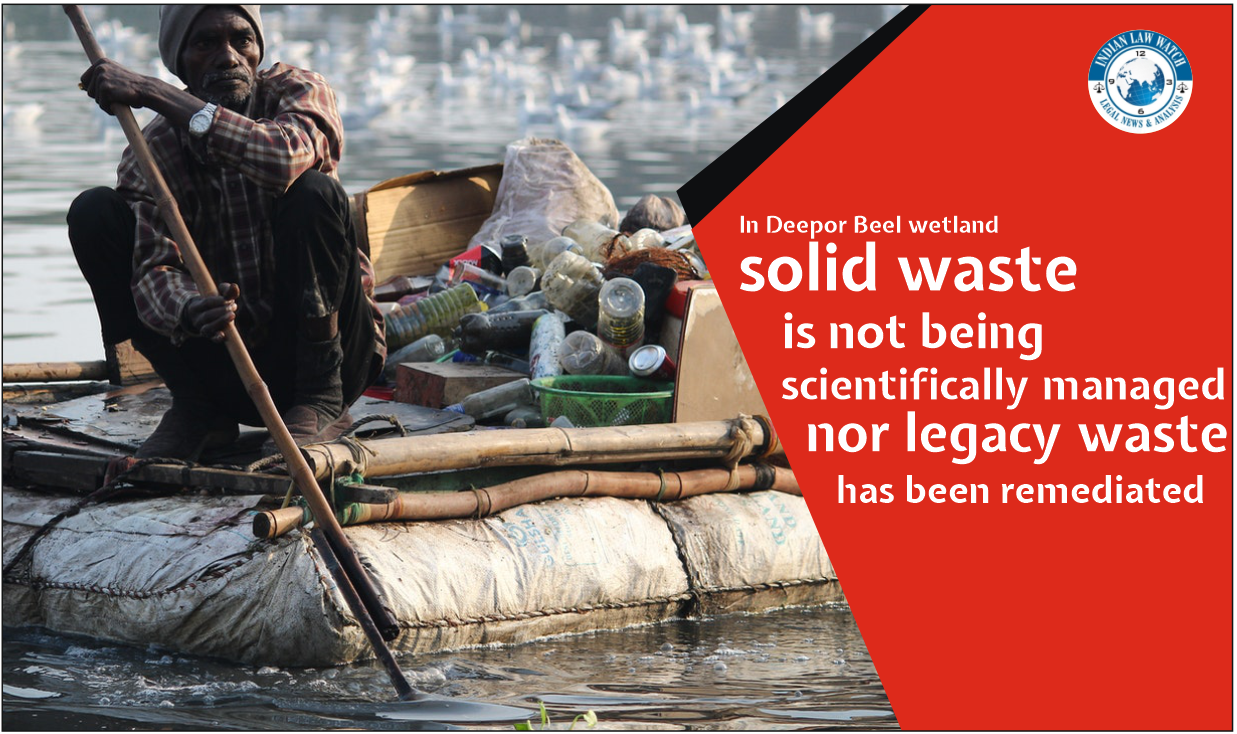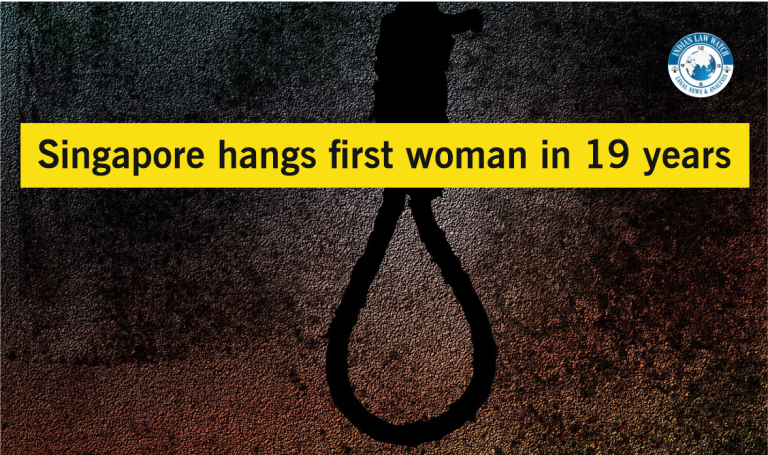
Grievance in this application is against damage to Deepor Beel wetland, Guwahati, Assam, by actions in violation of Municipal Solid Waste (Management and Handling) Rules, 2000 (now MSW Rules, 2016) and Wetland (Conservation and Management) Rules, 2010 (now Wetland Rules, 2017).
According to the applicant, Deepor Beel is a natural wetland and a Ramsar Site. It is also wildlife sanctuary on the bank of Brahmaputra River. It covers area of 900 ha. At maximum flooding, it is 4 m deep, while during the dry season, the depth drops to about 1 m. Around 150 species of birds have been recorded so far, in and around this Ramsar Site, including nine threatened species. Deepor Beel harbours many species of migratory birds as well as resident birds. The Greater Adjutant is regularly seen in Deepor Beel. Hodgson’s Bushchat is also cited in the northern edge of Deepor Beel on several occasions. Oriental Whitebacked and Long-billed vultures are still seen, mainly in winter, near Deepor Beel. Other vultures found in the region, Eurasian Griffon and Himalayan Griffon are also seen in nearby areas. A total number of 688 birds were counted on 4th January 1991 under Asian Waterfowl Census. Despite Deepor Beel’s proximity to the sprawling Guwahati town and nearby settlements, the Asian Elephants regularly visit the beel. In the nearby Rani RF and other forested areas, mammals such as Hoolock Gibbon, Assameses Macaque, Rhesus Macaque, Capped Langur, Slow Loris, Leopard, Jungle Cat, Leopard Cat, three species of Civets (Large Indian, Small Indian and Palm), Mangoose, Sambar, Barking Deer, Chinese Pangolin have been recorded. In view of such environmental significance of the Wetland, it is necessary to protect the same by strict compliance of the Wetland Rules, 2017, SWM Rules, 2016 and other environmental safeguards. However, it has been found that there is dumping of garbage resulting in large-scale death of fishes as per report of the District Fisheries Officer, Kamrup dated 19.10.2013. There are many brick kilns close to the wetland. Commercial exploitation of the area has led to reduction of migratory birds and disturbance of fishing activity. There is also discharge of untreated sewage in the wetland. The applicant has filed photographs in support of the above allegations. The applicant has also relied upon media reports.
It is seen that solid waste is not being scientifically managed nor legacy waste has been remediated. Capacity of the proposed integrated waste management plant has not been specified. There is also no water quality monitoring programme of the wetland. Inspite of monitoring by the Tribunal for a long period, no satisfactory progress has taken place so far. Estimated waste generation is said to be 600 TPD. There is, thus, need to work in a mission mode to remediate the legacy waste, scientifically handle current waste, speedily set up plant of adequate capacity, regular monitoring of the water quality of the wetland and other measures which stand identified.
This Tribunal has already constituted a monitoring committee.

ORDERS
The Tribunal constituted a Committee headed by Chief Secretary, Assam with representatives of concerned Departments responsible for protection of the wetland vide order dated 18.01.2018.
On consideration of reports of the Committee, the Tribunal issued directions from time to time including safe passage of elephants, declaring the area as eco-sensitive zone and setting up of Integrated Solid Waste Management Facility. Draft Notification dated 25.08.2021 was issued by the MoEF&CC for declaring ‘Eco-Sensitive Zone’ around the ‘Deepor Beel Wildlife Sanctuary’. The Railway Dept. has planned multiple underpasses for free passage of elephants along the railway track in the area, in the light of suggestion of Wildlife Institute of India. Steps have been taken for closing the dumpling site and clearing the legacy waste.
The progress was reviewed inter alia vide order dated 20.01.2022 and progress on the waste management and safeguards for the elephants was noted and further action was directed.
It is not for the Tribunal to determine how much finances are involved and who has to sanction the same which issues are to be dealt with by concerned administrative authorities for which Committee of representatives of concerned departments has been constituted, headed by the Chief Secretary, Assam. Needless to say that the wetland has to be protected as per mandate of the Wetland Rules. Waste is to be handled as per statutory rules. Eco Sensitive Zone is to be declared to give effect to the precautionary principle of environmental law to prohibit and regulate activities which adversely affect the eco sensitive zone. Elephants are entitled to safe passage and protection from accidents due to movement of trains. Directions for these steps have already been issued which may be given effect to. It is open to all concerned to give any further suggestions to the Committee. We note the suggestion of the applicant that observations of the Hon’ble Supreme Court in Shakti Prasad Nayak vs. Union of India and Ors.1 about size of the ramp pass to be constructed by the Railway must be duly considered.





